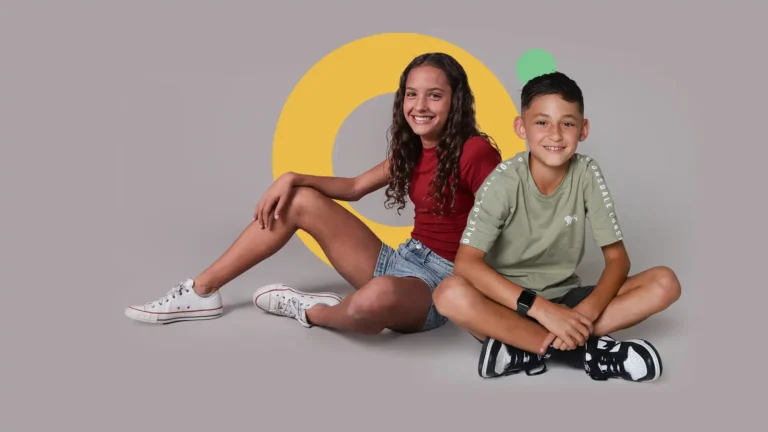How To Learn Accents For Child Acting
Speaking with an accent that is not your own is one of the most difficult skills for an actor to master. And yes, even Hollywood superstars struggle with this. Dick Van Dyke’s British accent in Mary Poppins or Steve Martin’s French accent in The Pink Panther immediately spring to mind as perfect examples of how even a highly-skilled actor can get it so very wrong.
So when a kids casting requires a child to speak with an accent, we can understand why a parent or guardian might be more than a little reluctant to put them forward for the role. After all, learning lines will be tough enough without also having to master an accent, right?
But here’s the thing—if your child or teen wants to make a big splash in the kids acting world, then this is a skill that they will need to learn at some point, especially if they plan on making a long-term career out of acting.
With this in mind, we’ve pulled together some tips from our child acting coaches here at Bubblegum Casting that will help your child get to grips with accents.
Listen, listen, listen

First things first, there is no way your child can master an accent if they don’t have a good understanding of what that accent sounds like. This means that you’ll need to start trawling through YouTube looking for videos of people speaking with the accent your child wants to emulate.
A word of warning though—look for authentic speakers and not actors playing a role. The last thing you want is your child taking lessons on the Irish accent from Leonardo DiCaprio or Tom Cruise.
Better yet, if you can meet with a friend or friend of a friend who speaks with that accent then do it! Spending thirty minutes speaking with and listening to an authentic speaker will do wonders for your child’s accent skills and they may even be able to pick up some pointers on common words and phrases.
Go for an easy win first
Every accent has some particularly noticeable sounds or inflections that are easy to pick up on. For example, some British accents have a tendency to make the ‘th’ sound in words like ‘brother’ sound more like a ‘v’ while also dropping the ‘r’ sound at the end of the word. This would then make ‘brother’ sound more like ‘bruva’ in that accent.
Focusing on these sounds at the outset can give your child an instant win as most people can drop or change a sound in word without too much difficulty. Everyone can say ‘bruva’ can’t they?
These small wins help your child build their confidence so they can tackle more difficult words and phrases later down the line.
But don’t focus on them too much
While those easy to master sounds are a great way to boost confidence, the only trouble is that if you focus too much on them, your child’s accent will only sound authentic for certain words.
This is why it’s so very important to listen to an accent as much as possible and to try to figure out how the person speaking is using their tongue when saying certain words. For this reason, we suggest listening to a variety of people speaking with the accent in question and trying to identify its most common traits. This is also why videos (or a real person) are great as you can see exactly how the speaker is moving their mouth.
Look for the tempo and rhythm
Yes, pronunciation is key to mastering an accent but so too is the tempo and rhythm of an accent. The simple fact is that no matter what the language is, people that speak with different accents may also have a different rhythm to their speech. If an accent has a musical or upbeat tempo, then get your child to match that rhythm even if they’re not using any actual words.
Speak naturally

We could tell you to practice, practice, practice, and for the most part, that would be good advice. However, your child will want to be able to speak with an accent naturally so they don’t really need to think about it too much.
You could try an ‘accents only’ policy at certain times of the day or spontaneously ask your child to speak with an accent when doing regular things at home. Another great idea is to create a game whereby once your child hears one of a number of keywords, they need to drop into their accent immediately. Not only will these help your child practice their accent skills but it will make it a lot more fun than sitting at a desk and repeating words they hear on a laptop.
Record and compare
Once your child has spent some time practicing their accent, sit down and record their speech. Then listen back and see how it compares to an authentic speaker. Your child may need some feedback here from yourself, but we’ve found that more often than not, most kids will recognise their own mistakes and know what they need to work on without being told.
This is a hugely important step in the process as your child really needs to hear what the accent sounds like when recorded. This is simply because the accent may sound different to them as they are speaking than it does to anyone listening.
Of course, we’re not for a moment suggesting that these tips will make your child an instant master of accents, but they will certainly help to make the process of learning one a little easier. And if things aren’t going so well, show them Steve Martin’s Inspector Clouseau trying to master ordering a hamburger in English—it’s hilarious and a good reminder that even the pros can struggle with accents.






